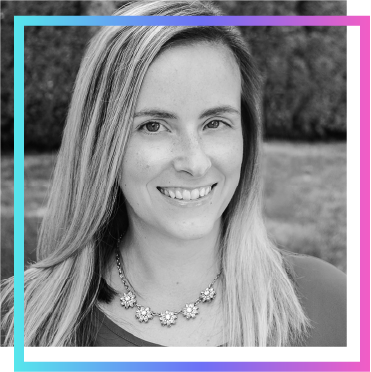We may receive commission if you decide to use counseling services through BetterHelp or other resources on our website.
Telemental / Telehealth Health Regulation in Louisiana
TABLE OF CONTENTS
I. What are the licensure requirements in Louisiana for telehealth mental health care?
Louisiana’s licensure requirements have been expanded through the Louisiana Telehealth Access Act that lifted the restriction for out-of-state practitioners to only offer services through a local licensed Louisiana practice. Louisiana is not a part of any interstate compacts, other than the nurse licensure compact and the physical therapy compact. In-state and out-of-state providers may offer you telemental services through Louisiana’s current telehealth regulations.
Requirements for out-of-state treatment
Louisiana started issuing telemedicine licenses to qualifying health care professionals who are licensed to practice in other states after the Louisiana Telehealth Access Act removed out-of-state restrictions. However, laws still prevent out-of-state providers from opening offices in Louisiana or conducting any virtual appointments while visiting or physically being in Louisiana. Regulations established by Louisiana’s medical board apply to out-of-state providers, in addition to existing laws already governing telehealth appointments. You can have live, two-way video telemental appointments with out-of-state psychiatrists, therapists, and other mental health professionals who have telemedicine licenses in Louisiana under these guidelines.
Emergency licensure
To expand telehealth services during the COVID-19 public health emergency, the Louisiana State Board of Medical Examiners began issuing temporary telemedicine permits to out-of-state health care professionals. These temporary permits will expire 90 days after the end of the emergency period, which is currently set for March 31, 2021.
II. What are the online prescribing regulations in Louisiana?
Louisiana law RS 37:1271.1 allows for physicians with unrestricted licenses to prescribe medications for you, including controlled substances, during virtual visits that are comparable substitutions for in-person visits, without requiring you to have a previous in-patient visit with the doctor. Some notable exceptions to this include treatment of obesity and non-cancer-related pain management. Online questionnaires or email messages aren’t considered appropriate evaluation methods. Physicians with online prescribing restrictions can apply for exceptions with the Louisiana state medical board.
III. What are other common telehealth restrictions in Louisiana?
Louisiana previously restricted telehealth appointments to live, two-way video that offered some HIPAA privacy protections. The Louisiana Telehealth Access Act expanded telehealth to include audio-only calls, under certain guidelines, and COVID-19 emergency provisions also include less-secure two-way video calling.
Types of telehealth services allowed
Louisiana law allows for reimbursement for your doctor’s visits that include live, two-way video with two-way audio. A telephone conversation or email message does not constitute telemedicine; however, the Louisiana Telehealth Access Act expanded this to include live two-way audio if the provider can meet the same standard of care as an in-person visit. Louisiana’s definition of telemedicine excludes store-and-forward services for both Medicaid and private payer insurance claims. Louisiana does allow some defined remote monitoring under their Medicaid provisions.
Types of providers allowed to offer telehealth services
According to Louisiana’s telehealth statutes, health care providers include licensed facilities and institutions certified to provide health care services, as well as the following types of licensed providers:
- Physician
- Physician assistant
- Dentist
- Registered nurse
- Advanced practice registered nurse
- Licensed dietitian or nutritionist
- Licensed practical nurse
- Certified nurse assistant
- Offshore health service provider
- Licensed midwife
- Speech-language pathologist
- Audiologist
- Optometrist
- Podiatrist
- Chiropractor
- Physical therapist
- Occupational therapist
- Certified or licensed athletic trainer
- Psychologist
- Medical psychologist
- Social worker
- Licensed professional counselor
- Licensed perfusionist
- Licensed respiratory therapist
- Licensed radiologic technologist
- Licensed clinical laboratory scientist
Emergency allowances
Due to the COVID-19 emergency, Louisiana lifted some restrictions and regulations governing telehealth appointments, including allowing you to have less-secure methods of communication, such as app-based two-way live video. The COVID-19 emergency period currently expires on March 31, 2021.
IV. Telehealth provider resources in Louisiana
For more information about finding telemental and telehealth services in Louisiana, or for updates on regulations or COVID-19 emergency provisions, please review these additional resources.
Louisiana Department of Health
The Louisiana Department of Health can provide you with updates about COVID-19 provisions that may affect telehealth regulations, and it also has information about Medicaid and other important health-related topics.
Contact Information: Website | 225-342-9500
Louisiana Medicaid Program
The Louisiana Medicaid Program offers details on enrollment, eligibility, and benefits. You can call and talk to an advisor if you need to sign up or have questions about telehealth services covered by Medicaid.
Contact Information: Website | 888-342-6207
TexLa Telehealth Resource Center
The TexLa Telehealth Resource Center is a telehealth resource for Texas and Louisiana that can keep you up-to-date with the latest news about COVID-19 and changes in regulations that may affect telehealth services.
Contact Information: Website | 877-391-0487
V. Sources
- Center for Connected Health Policy: Louisiana Telehealth State Laws & Reimbursement Policies | Last accessed July 2024
- Louisiana Department of Health: Community Choices Waiver Provider Manual | Last accessed July 2024
- Louisiana State Legislature: Louisiana Telehealth Access Act | Last accessed July 2024
- Louisiana State Legislature: RS 37:1271.1 | Last accessed July 2024
- Louisiana State Legislature: RS 37:1262 | Last accessed July 2024
- Louisiana State Legislature: RS 40:1223.3 | Last accessed July 2024
- Louisiana Office of the Governor: Proclamation Number 30 JBE 2021 | Last accessed July 2024
- Louisiana State Board of Medical Examiners: Emergency Temporary Permit Application | Last accessed July 2024
- Federation of State Medical Boards: U.S. States and Territories Modifying Requirements for Telehealth in Response to COVID-19 | Last accessed July 2024


